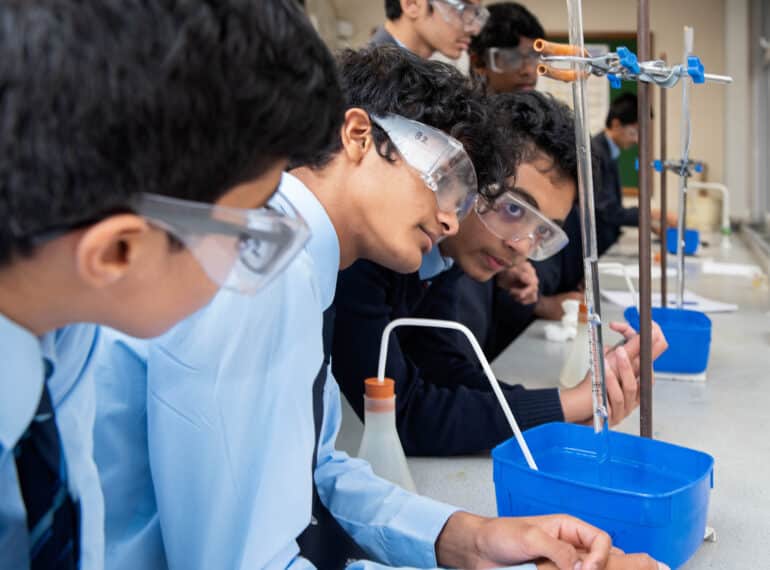
QE is to completely refurbish two Chemistry laboratories, following confirmation that it has been awarded a £100,000 award from research and education charity, the Wolfson Foundation.
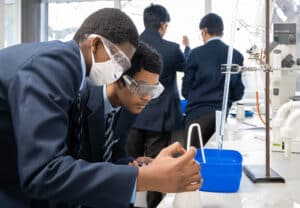 The work will not only provide new equipment and fittings for the busy laboratories in the large 1970s Fern Building, but will also increase their capacity.
The work will not only provide new equipment and fittings for the busy laboratories in the large 1970s Fern Building, but will also increase their capacity.
The Wolfson Foundation grant will be supplemented by a contribution from The Friends of Queen Elizabeth’s charity.
Headmaster Neil Enright said: “Sciences are tremendously strong at QE at all levels and we already have huge numbers studying Chemistry at A-level, many of them going on to highly regarded courses at university, such as Medicine. This award will enable us to provide them with the best, modern facilities.
“We are very grateful both to the Wolfson Foundation and to our parents, alumni and friends who give through FQE.
“We plan to carry out the work in the summer holidays this year, along with both the next phase of improvements in the Fern Building and, hopefully, the start of work on The Robert Dudley Studio – the new drama and spoken-word facility to be created within our Main Building.”
 Paul Ramsbottom, chief executive of the Wolfson Foundation, said: “We are very pleased to support Queen Elizabeth’s School, enabling them to create outstanding facilities for their students.
Paul Ramsbottom, chief executive of the Wolfson Foundation, said: “We are very pleased to support Queen Elizabeth’s School, enabling them to create outstanding facilities for their students.
“We hope the new Chemistry laboratories will encourage and inspire students at all levels to study Science.”
The bid to improve the two laboratories, S9 and S10, was submitted to the Wolfson Foundation last summer. The School is working with experts in the field of school laboratory installations.
Floors, ceilings, services, teachers’ stations, student workbenches and tools and fixtures will all be replaced, with new wiring and feeds for IT and utilities also included within the scope of the project.
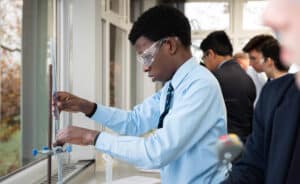 QE’s Head of Chemistry, Amy Irvine, today spoke of her delight that the work is to go ahead.
QE’s Head of Chemistry, Amy Irvine, today spoke of her delight that the work is to go ahead.
“The facilities in those laboratories are no longer of a standard that best suits teaching practical science lessons, so this is extremely good news. The refurbishment will make it easier for us to deliver the best possible lessons. Boys of all ages here will benefit, while the work will make QE an even more attractive destination as we continue to recruit high-quality staff to the department.”
QE currently has 18 teachers and three laboratory technicians across three Science subjects, with nine of these working in Chemistry.
The Wolfson Foundation is an independent charity with a focus on research and education. Its aim is to support civil society by investing in excellent projects in science, health, heritage, humanities and the arts.
Since it was established in 1955, some £1 billion (£2 billion in real terms) has been awarded to more than 12,000 projects throughout the UK, all on the basis of expert review.
Twitter: @wolfsonfdn

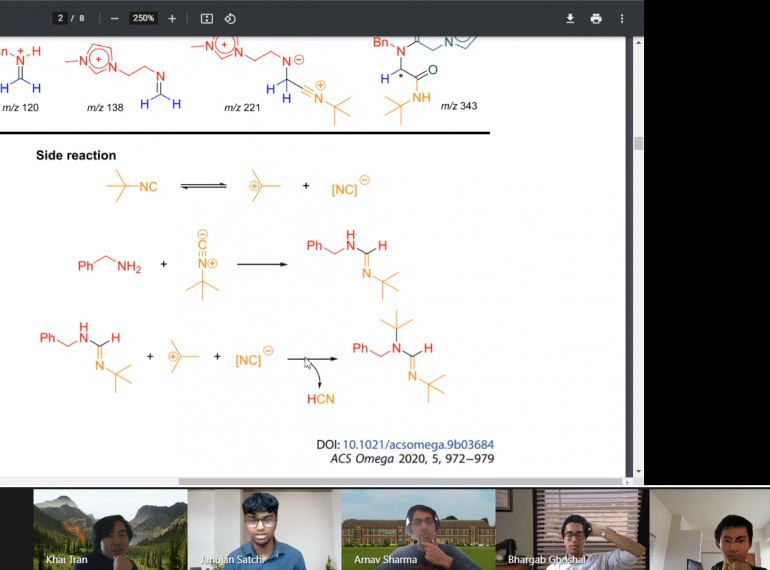
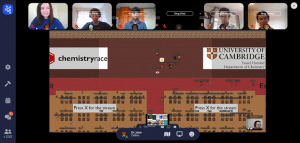 QE’s Chem Taj team were ranked fifth out of the 42 teams competing in the Cambridge Chemistry Race, many of them drawn from the country’s leading academic schools.
QE’s Chem Taj team were ranked fifth out of the 42 teams competing in the Cambridge Chemistry Race, many of them drawn from the country’s leading academic schools. Khai agreed, saying “it was interesting to apply the Chemistry we’ve learnt to topics beyond our specification”, while Janujan said that by working as a team, they were able to “apply different thought processes to the problem”.
Khai agreed, saying “it was interesting to apply the Chemistry we’ve learnt to topics beyond our specification”, while Janujan said that by working as a team, they were able to “apply different thought processes to the problem”.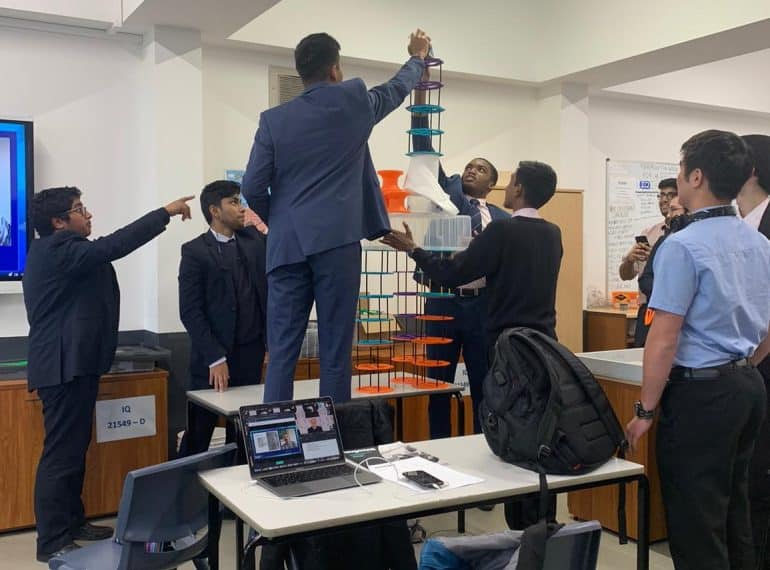
 Sixth-formers have already enjoyed stimulating day-long sessions on Medicine in Action, Chemistry in Action, Product Design in Action and Geography in Action, with a similar event for Biology due to take place in December.
Sixth-formers have already enjoyed stimulating day-long sessions on Medicine in Action, Chemistry in Action, Product Design in Action and Geography in Action, with a similar event for Biology due to take place in December.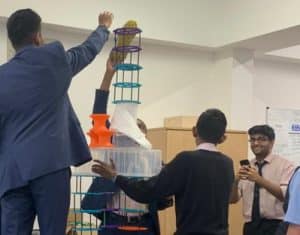 The Resourcefulness and design lecture, delivered by Kingston University Senior Lecturer Pascal Anson, stimulated a practical activity, pictured. “Here we see some examples of structures which were resourcefully developed by the students using VEX IQ and EDR Robotics game elements – great thinking on their feet!” added Mr Noonan.
The Resourcefulness and design lecture, delivered by Kingston University Senior Lecturer Pascal Anson, stimulated a practical activity, pictured. “Here we see some examples of structures which were resourcefully developed by the students using VEX IQ and EDR Robotics game elements – great thinking on their feet!” added Mr Noonan.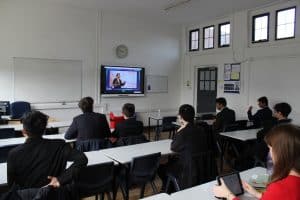 The Geography lectures were similarly wide-ranging. One talk, entitled Lessons in sustainability: An explorer’s tale, was by Jason Lewis, the first person to circumnavigate the earth without using motors or sails. Another featured academic Martin Evans, from the University of Manchester, speaking on Landscape Systems in the Anthropocene. And Emily Parry, Head of Geography, highlighted lectures on water insecurity and on how COVID-19 has impacted the Pacific Islands.
The Geography lectures were similarly wide-ranging. One talk, entitled Lessons in sustainability: An explorer’s tale, was by Jason Lewis, the first person to circumnavigate the earth without using motors or sails. Another featured academic Martin Evans, from the University of Manchester, speaking on Landscape Systems in the Anthropocene. And Emily Parry, Head of Geography, highlighted lectures on water insecurity and on how COVID-19 has impacted the Pacific Islands.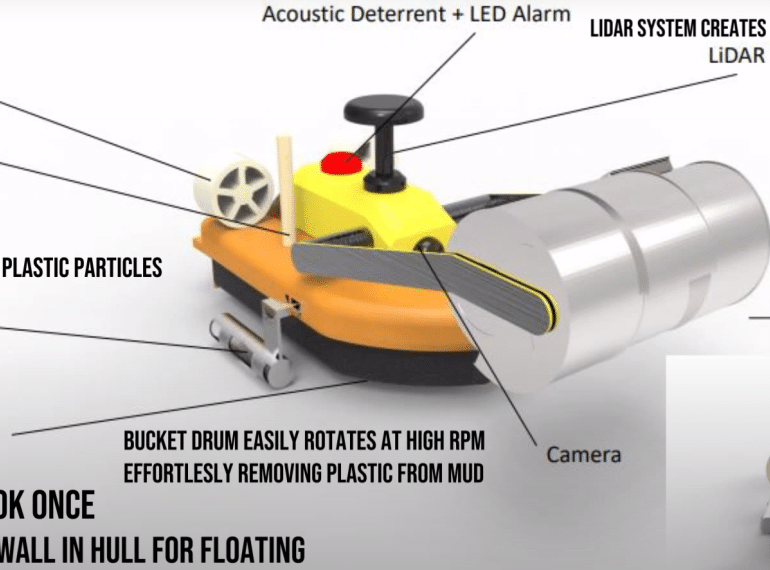
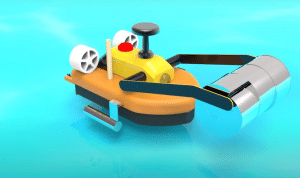 The Prata Neptunia team combined their skills in Technology, Mathematics and Chemistry and also produced a slick video presentation to promote their design for an autonomous hovercraft robot.
The Prata Neptunia team combined their skills in Technology, Mathematics and Chemistry and also produced a slick video presentation to promote their design for an autonomous hovercraft robot. The team learned project-management skills in order to optimise their time effectively, from the use of Gantt charts to task delegation. They designed prototypes at home, building and testing parts, and investigating processes to remove microplastics in order to determine the feasibility of their design.
The team learned project-management skills in order to optimise their time effectively, from the use of Gantt charts to task delegation. They designed prototypes at home, building and testing parts, and investigating processes to remove microplastics in order to determine the feasibility of their design. The Ocean team, Jashwanth Parimi, Utkarsh Bhamidimarri and Siddarth Jana, also started their project relatively late and had only about a month to complete it.
The Ocean team, Jashwanth Parimi, Utkarsh Bhamidimarri and Siddarth Jana, also started their project relatively late and had only about a month to complete it.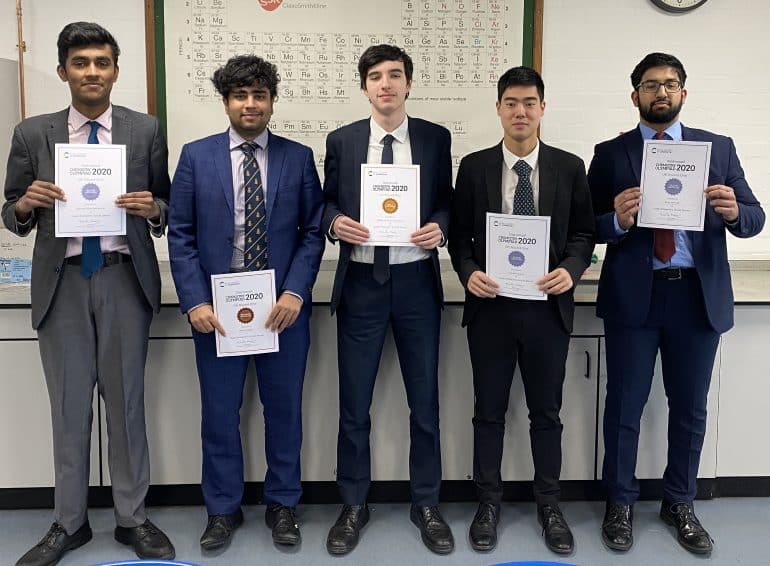
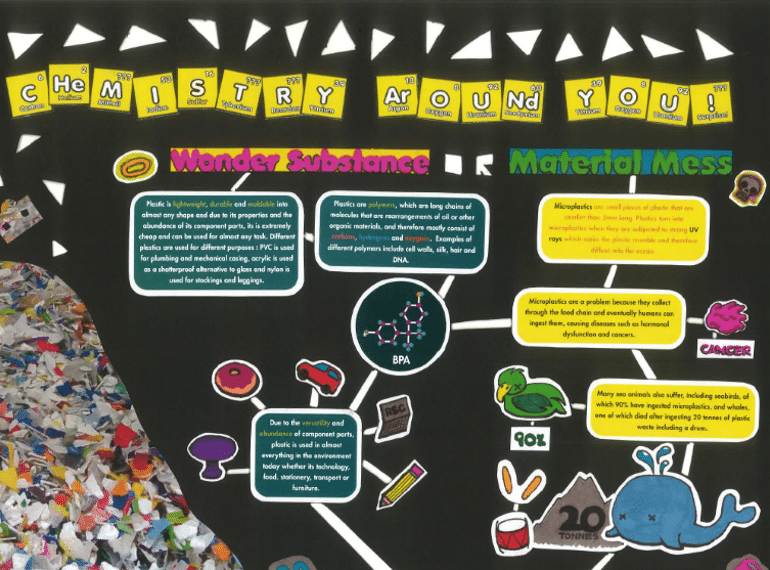
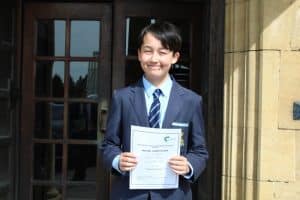 Entrants in the under-13 competition run by the RSC’s Chilterns and Middlesex Division were challenged to prepare a poster under the heading of The Chemistry Around Us.
Entrants in the under-13 competition run by the RSC’s Chilterns and Middlesex Division were challenged to prepare a poster under the heading of The Chemistry Around Us.